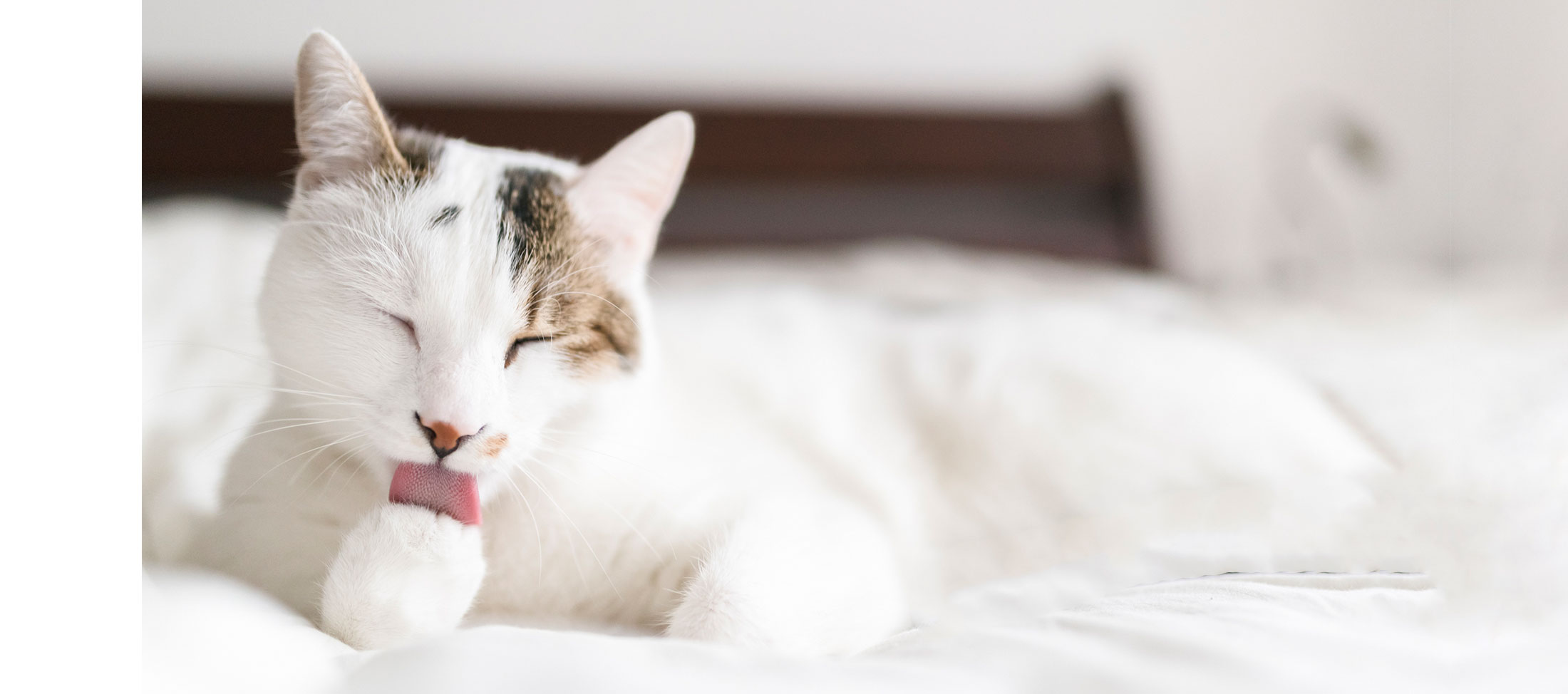Intestine
Home » Interactive Animal » Feline » Digestive » Intestine

The small intestine, named for its small diameter, roughly spans 2 ½ times the length of your cat’s body. As food material exits the stomach, it enters the small intestine and mixes with pancreatic and gall bladder secretions. These secretions cause breakdown of food nutrients to allow absorption of proteins, sugars, and fats. Cats with small intestinal disease do not feel well; they may have vomiting and/or voluminous, watery diarrhea. Common causes of small intestinal disease include: dietary intolerance, foreign body ingestion (e.g.: string, small toys), and parasites. Small intestinal symptoms can also be seen with diseases outside the intestine tract: hormonal imbalances (e.g.: hyperthyroidism) and organ failure. Lab work and imaging studies (e.g.: x-rays and ultrasound) help to diagnose these secondary problems.


